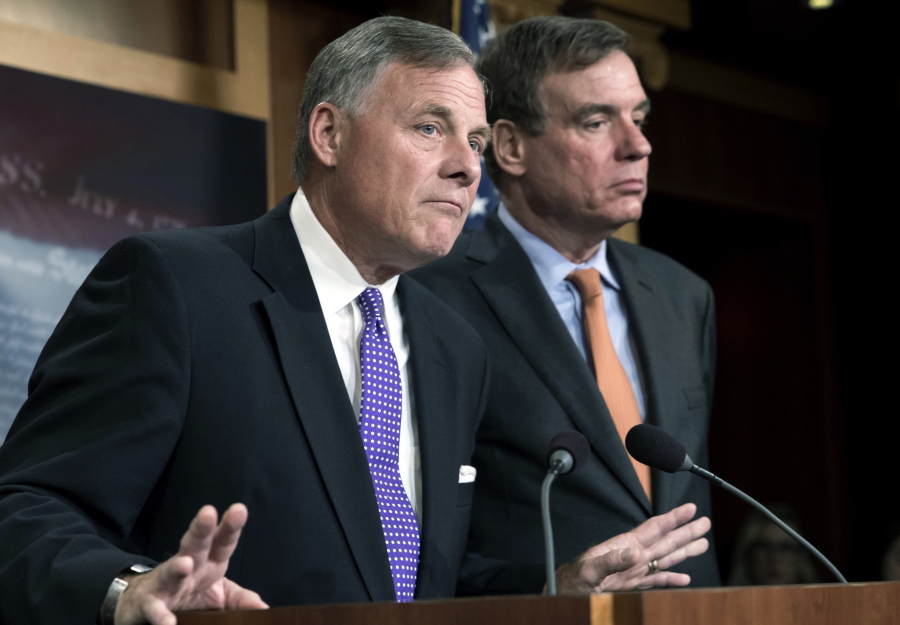WASHINGTON — With no firm conclusions yet on whether President Donald Trump’s campaign may have coordinated with Russia, the Senate intelligence committee could delay answering that question and issue more bipartisan recommendations early next year on protecting future elections from foreign tampering.
Recommendations on how to counter the threat from attempted election hackers could be the first written product from congressional committees examining Russian interference into the 2016 election that put Trump in the White House. An early bipartisan report could be an attempt to boost confidence in the panel’s probe, as lawmakers worry that other issues could be lost if they are not able to agree on the most anticipated questions like collusion.
A new poll by the Associated Press-NORC Center for Public Affairs Research shows more than half of Americans have expressed skepticism about multiple congressional investigations, with just 13 percent saying they’re very or extremely confident they will be fair and impartial.
There has been concern from both Democrats and Republicans that if members can’t agree, the final reports will be dismissed by an already skeptical, partisan public.



